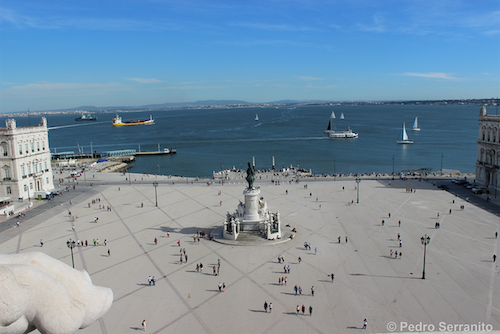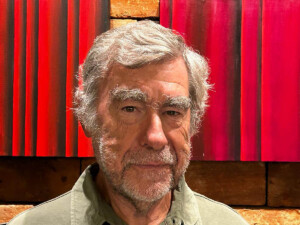Jaqueline Tyrwhitt Urban Design Lecture: Manuel Salgado, “City-Making”

(c) Pedro Serranito
Event Description
“City-making” can be approached from different points of view and disciplines, whether starting from global theoretical reflections or from a particular and pragmatic approach to solving concrete problems.
One can contribute to ‘city-making’ as a thinker, sociologist, economist, legislator, planner, developer, policymaker, or even an agitator.
Throughout my life, I have contributed to said process in three different ways:
1. As a planner
Starting from the 1974 Revolution, in a climate of great political and social unrest, I designed several Urban Plans in different cities to solve concrete problems.
2. As an architect
I then designed the Cultural Center that remodeled the Belém monumental area in Lisbon; the Expo’98 Urban Project; several urban regeneration projects; a major port infrastructure in the Azores and a new urban center in Rome.
3. As a policymaker
For 12 years, I made decisions about and implemented urban policies in the Municipality of Lisbon. In a changing economic, social, and political context, the rehabilitation of the historic city, the redesign of public space, and the conquest of the Tagus River banks changed the city.
Staying grounded in reality and being concerned with possible, if imperfect, solutions was a constant in these three ways of “making city.”
Speaker
 Manuel Salgado earned a degree in Architecture in Lisbon, in 1968. He worked in a construction company and an international engineering office before dedicating himself to urban planning – which he did right after the Portuguese Revolution of 1974.
Manuel Salgado earned a degree in Architecture in Lisbon, in 1968. He worked in a construction company and an international engineering office before dedicating himself to urban planning – which he did right after the Portuguese Revolution of 1974.
In 1988 Vittorio Gregotti invited him to join him in an international competition to design the Centro Cultural de Belém, which became his first large-scale project. This was followed by the Expo-98 Plan and the Antas Urban Project, which included FC Porto’s soccer stadium.
Drawing from those experiences, he was invited to develop several large-scale interventions, including both urban plans and architectural projects, in Portugal and abroad. He also served as an Urban Planning Professor at IST, one of Portugal’s leading Universities.
In mid-2007, he ran for the City Council of Lisbon, where he became Head of Urban Planning for the subsequent 12 years, renouncing his professional and academic activities.
Throughout his career, he received numerous awards and accolades, including appointment as an honorary academician of the Academy of Urbanism in England; membership on the Scientific Council of the French think-tank “La Fabrique de la Cité”; he was a member of the Jury at the French National Prize for Urbanism; and was part of the Scientific Advisory Board of the magazine “Urbanística INU”.
Harvard University welcomes individuals with disabilities to participate in its programs and activities. If you would like to request accommodations or have questions about the physical access provided, please contact the Public Programs Office at (617) 496-2414 or [email protected] in advance of your participation or visit. Requests for American Sign Language interpreters and/or CART providers should be made at least two weeks in advance. Please note that the University will make every effort to secure services, but that services are subject to availability.
#GSDEVENTS